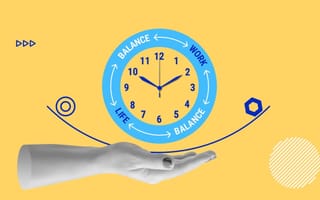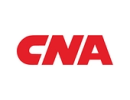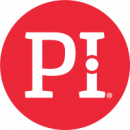For some professionals, the traditional “9 to 5” workday is just a Dolly Parton song, not a reflection of their reality.
The prevalence of flexible work schedules and environments has grown in recent years, and for good reason. Research has shown that flexibility in the workplace offers an array of benefits for both organizations and their people: increased productivity, improved mental health, boosted morale and enhanced work-life balance.
According to an Atlassian study, 71 percent of employees in flexible work environments report higher innovation compared to 57 percent in rigid setups, 83 percent feel more positively about their organization’s culture versus 47 percent without such flexibility, and only 14 percent experience symptoms of burnout, significantly lower than the 36 percent reported by those lacking flexible work options.
It’s no wonder employers and employees alike increasingly favor flexibility. Still, by definition, the details and impact of an organization’s work arrangements can vary. For job seekers, these particulars may not be immediately clear.
But at 13 companies, team members experience the benefits of flexibility in impactful — and personal — ways. They offered a glimpse into how exactly their workplaces provide flexibility.
From the opportunity to work in Spain to the ability to drive their kids to school in the morning, professionals at these companies have found that flexibility can lead to meaningful experiences and tangible growth in and out of work.
Cox Enterprises operates in diverse sectors, including broadband, automotive and media.
What does flexibility in the workplace look like for you? What practices and policies are in place that support it?
Flexibility in the workplace is the ability to balance your personal life and your work life. And Cox understands that everybody doesn’t have the same work-life balance. I don’t necessarily need to come into the building every day for my responsibilities within my department. I work in person on Wednesdays, and I’m starting to go in on Thursdays as well because we started playing pickleball at the gym in the office.
I also have flexibility with outside personal responsibilities and commitments. For example, if I have an appointment on a Wednesday, I can stay and work from home that day to make the appointment. That flexibility makes me feel valued and that my work ethic isn’t questioned.
“Flexibility makes me feel valued and that my work ethic isn’t questioned.”
Why is flexibility an important element of your company’s culture?
When you think of company culture, flexibility is right up there with benefits like pay, healthcare and retirement, because people understand that quality of life and balance matters. When you allow that flexibility, you are giving an employee a chance to make a positive impact on their environment, their team and, ultimately, the company.
Last year, my daughter, who is away for college, injured her foot and needed to go to doctor’s appointments. I had the flexibility to be in Virginia with her and still work. The flexibility of working at home is great, but if there are any emergencies, I can go somewhere else and still get my job done while being there for my family. That is one of the things I appreciate about Cox.
What tools or meeting structures ensure a flexible work setup works for everyone? Is there specific software you swear by or informal happy hours you love?
As part of a hybrid team, I try to ensure that I continue to interact with my team members and my colleagues so that our exchange of information and ideas is varied. We do it online, but we can also do it in person.
In terms of meeting structure, sometimes you want face-to-face time with someone, but seeing yourself on screen can also be distracting. One of the things that we’ve gotten into the habit of when we’re in a large group is turning cameras off and just having a conversation.
Virtual meeting tools give us the flexibility not just to get business done but also to allow for a few minutes of banter. At one meeting I attend every week, the facilitator always starts with a fun icebreaker. You also can post things in the chat, change your backgrounds to represent certain things you care about or share information. It lets you see more of each person and have a connection even when we’re not physically together.
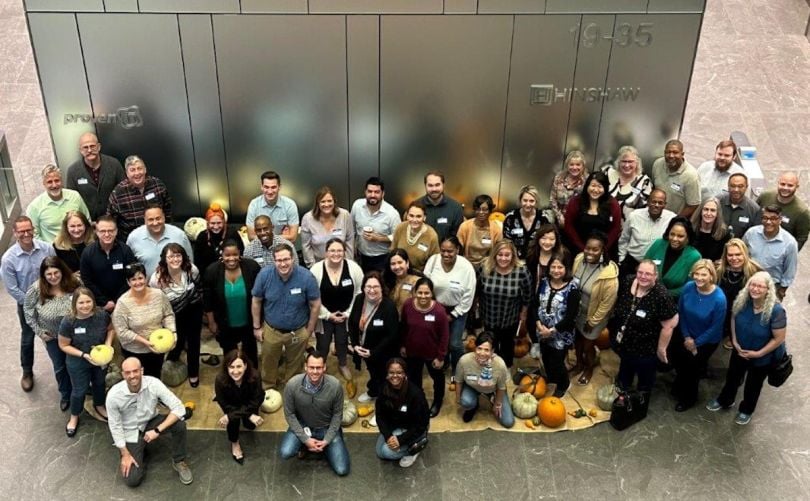
CNA is a commercial property and casualty insurance company that provides an array of standard and specialized products and services for businesses and professionals.
What does flexibility in the workplace look like for you? What practices and policies are in place that support it?
Flexibility in the workplace for me looks like getting my high school daughter out the door for school, grabbing a cup of coffee and checking my email to catch up with offshore team members via Teams before getting my morning workout in. It means I can be available for my family during the day if needed and — equally — be the best version of myself for my team.
I started working a hybrid schedule back in 2005 when my manager was in Chicago, and I was traveling between the New York City office and an office in New Jersey. I was one of two people on my team on the East Coast, so eventually, things shifted to a remote setup. Logistically, CNA has provided me with the technology I need to do my job. I have multiple monitors, a laptop with a camera and the software I need to communicate effectively and securely with my coworkers worldwide. On the human side, the key ingredient is the unwritten respect for one another’s time.
“The key ingredient is the unwritten respect for one another’s time.”
Why is flexibility an important element of your company’s culture?
I’ve been with CNA for almost 27 years, and in the second half of my time here, I’ve been involved in projects with colleagues in various time zones. A flexible workplace enables collaboration, which is needed not just for day-to-day work but also for successful project implementations.
With the emergence of Covid in 2020, I was grateful to already be working from home full-time.
There wasn’t an adjustment period for me, as I was already set up with the technology I needed to successfully complete my job functions from a remote location. I was grateful for the health and safety of my family, but when school went from remote to in-person learning, I was hesitant to put my daughter back on the bus for what was essentially a 30-minute ride each way. Without missing a beat, I could adjust my schedule to drive her to school each morning and pick her up again toward the end of her day. This gave me peace of mind, and I was able to keep her safe while still being available for my team.
What tools or meeting structures ensure a flexible work setup works for everyone? Is there specific software you swear by or informal happy hours you love?
Respect for time and mutual trust is the cornerstone of our success as a team. If a meeting exceeds its scheduled time, no one questions why someone is dropping off a call. As a director, I am often double-booked, and I have the autonomy to determine where I am most needed and where I can ask someone on my team to sit in for me.
Microsoft Teams is my team’s go-to communications channel. It enables chat, voice calls, video calls and the ability to schedule a meeting on the spot. Teams has a plethora of backgrounds and filters, so while I’m working from home, I can use the soft filter to enhance my morning hair and put up a creative background to mask my occasionally messy home office. Teams can facilitate informal happy hours, but they’re not my cup of tea.
I’d rather engage in “water cooler talk” for a few minutes during scheduled meetings and catch up on the joys and challenges of my team’s day rather than the equivalent of “forced family fun” at the end of a business day. Why? Because as I mentioned before, we are scattered all over the country and 5 p.m. in New York isn’t 5 p.m. for everyone on the team.
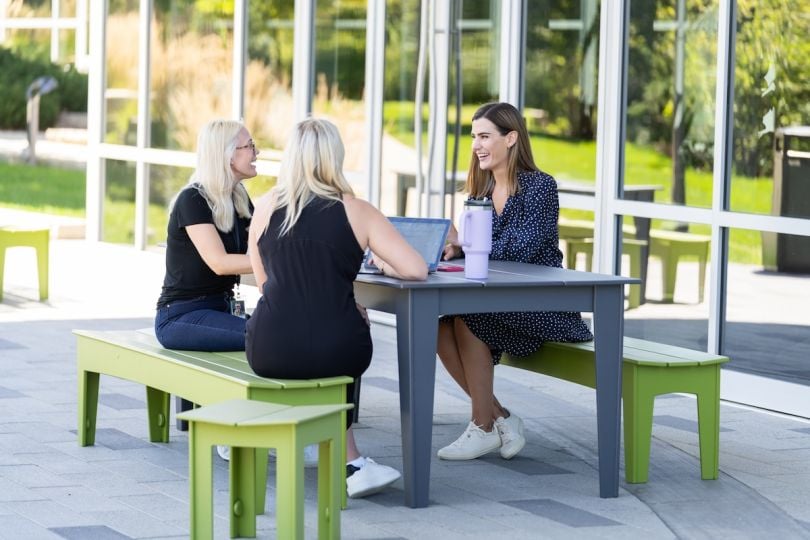
Workiva offers a cloud-based platform that simplifies regulatory, financial, and operational reporting, improving organizations’ data management, transparency, and collaboration.
What does flexibility in the workplace look like for you? What practices and policies are in place that support it?
Flexibility in the workspace means that my employer trusts me to be productive no matter where I work. I have benefited from Workiva’s “work where you work best” approach to workplace flexibility. This perk has made me wish I worked for Workiva when my son was small.
“Flexibility in the workspace means that my employer trusts me to be productive no matter where I work.”
Why is flexibility an important element of your company’s culture?
The flexibility in my workspace has not only allowed me to be there for the people in my life, but it has also helped me create healthier life habits. I walk my dog during my lunch break or do some strength training when I have a couple of minutes before a meeting starts. Whenever people who have known me for a long time see me, they say, “You look really happy!” I am. I am taking better care of myself because I feel supported in the workplace.
What tools or meeting structures ensure a flexible work setup works for everyone? Is there specific software you swear by or informal happy hours you love?
In my role, I utilize many tools to facilitate conversations with my clients and my team: Zoom, Slack, Teams, email, one-on-one conversations, group conversations and so on. I feel that Workivians are eager to teach and help me learn, and using these tools allows people to answer at their convenience.
Pie Insurance offers workers’ compensation insurance to small businesses, using technology to streamline the process and make it more accessible and affordable.
What does flexibility in the workplace look like for you? What practices and policies are in place that support it?
Flexibility, for me, involves many things; it involves opportunities to work at my preferred time of day and in my own time zone within our business hours. It’s the freedom to run out for a doctor’s appointment without having to make that time up later or to run a quick errand for something that can’t be accomplished on the weekend. It’s also the option to choose between working at home or going into the office, depending on which will work best for me on any given day or week.
In addition to flexible PTO for most roles, we also have a realistic amount of sick time, as well as caregiver and bereavement leave, and generous parental leave policies in place, allowing for a great deal of flexibility when life happens. I’m a team lead on a busy team, and I use my time off and actively encourage team members to use theirs. My manager and I are huge proponents of taking mental health days when people feel overwhelmed or haven’t had time off in a while, and we’re very transparent about taking our own mental health days. I have a wellness day of my own scheduled a week from now.
Why is flexibility an important element of your company’s culture?
For me personally, going into the office most days once it opened back up after COVID-19 closure protocols was a nice change of pace from sitting alone in my home office. As someone who was hired remotely during the pandemic, I loved finally meeting my coworkers in person and getting to know them. The workstations in the office have comfortable chairs, and the Wi-Fi never goes down.
But the most significant benefit has been that I’ve had built-in flexibility to be at home working and caring for my husband after an extensive back surgery that he underwent in the summer of 2022 and another more recent surgery. He was not super mobile after either event, and it was such a relief to stay home, still get all my work done and take all of my meetings, but keep an eye on him and care where he needed it. The psychological safety that brought me positively impacted me and the team that I lead — they watch me manage work, family and life balance in real time and feel safe enough to do the same.
“Remote work isn’t about avoiding spending time with colleagues — it’s about flexibility and, ultimately, work-life balance.”
What tools or meeting structures ensure a flexible work setup works for everyone? Is there specific software you swear by or informal happy hours you love?
As far as software goes, our teams wouldn’t survive without Slack and Zoom. We collaborate on Slack, and it’s a critical tool for keeping up with what’s happening at Pie. As for Zoom, we have a very on-camera culture at Pie — we really do like to watch each other laugh at our terrible dad jokes or sarcastic comments. When we’re in the office for collaboration days or big team meetings, casual end-of-day happy hours and team-building events always exist. Some of us have a book club, and some of us meet up for game nights, pub trivia and other out-of-office bonding events. We really do like each other at Pie, so remote work isn’t about avoiding spending time with colleagues — it’s about flexibility and, ultimately, work-life balance.
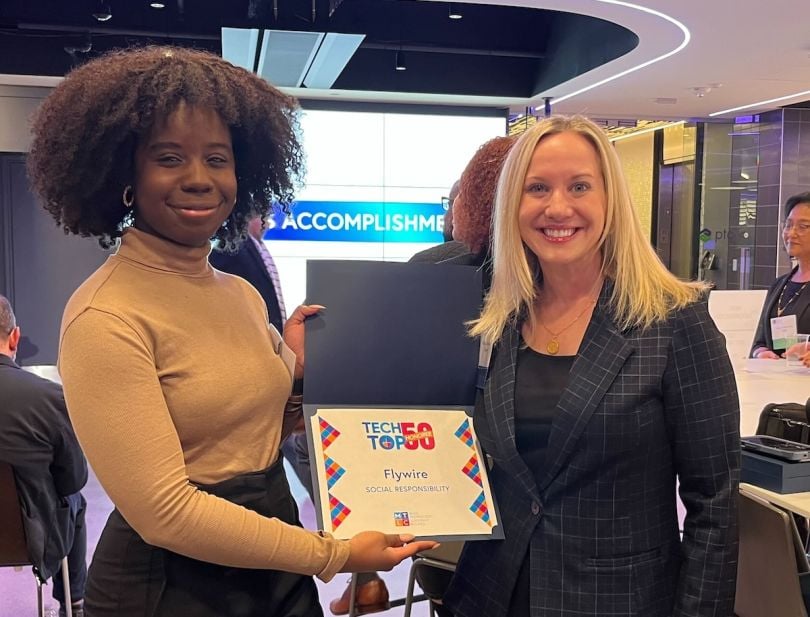
Flywire simplifies international payment processes across industries such as education, healthcare, travel and B2B sectors by offering tailored digital payment solutions that enhance transaction efficiency and accessibility.
What does flexibility in the workplace look like for you? What practices and policies are in place that support it?
Flexibility in the workplace introduced me to a work culture beyond what I could have imagined before I graduated at the start of the pandemic in 2020. Here at Flywire, there are so many ways in which the company supports a flexible work environment. Some FlyMates follow a hybrid work schedule, some are remote employees, and some moved to a new office temporarily through our global mobility program. Through internal programs, I have seen employees based in the United States get the opportunity to work in Spain for a few months. There have also been FlyMates who moved to new cities and became hybrid or remote employees as a result.
Recently, I had the chance to go to London and meet some of my colleagues in person that I knew so well already since we had been working together remotely for a few years. There, I connected with a FlyMate who had worked in five different Flywire offices in five different countries during the years she has been at Flywire. She definitely had the best food recommendations and great memories to share.
Why is flexibility an important element of your company’s culture?
Flexibility allows employees to find their most effective rhythm between office days and work-from-home days or go on adventures to new cities, all while staying a FlyMate. This has created a productive working environment and a richness in Flywire’s culture where we can connect with people from different countries, cultures and backgrounds. I enjoy listening to people’s travel stories and experiences.
“Flexibility allows employees to find their most effective rhythm between office days and work-from-home days or go on adventures to new cities.”
Personally, I had the opportunity to travel to Canada and work remotely for one year. It was a chance to explore a new country and culture. I can now proudly say that I survived a winter in the Great White North. During this time, I made amazing memories, made new friends and learned a new sport: figure skating. I am now back in the United States, where I still skate and manage the Boston winters much better.
What tools or meeting structures ensure a flexible work setup works for everyone? Is there specific software you swear by or informal happy hours you love?
In a flexible workplace environment, setting up informal online meetings with colleagues is very helpful. I make it a point to reach out to new people and try to set up a meeting. This has allowed me to meet different FlyMates outside of my team and learn more about their roles and the cities where they live. With Flywire’s global workforce, I find it useful to set business hours within the work calendar to see when someone starts and ends their work day. I also like the “local time” feature within direct messaging tools.
Finally, events and food in the office are always crowd-pleasers. I think office events are also a great way to bring people together. These types of events have allowed me to meet people who are on a trip to town for a few days and reconnect with others I have not seen in a while.
Eventus Solutions Group focuses on enhancing customer experiences by providing enterprises with strategies, technologies and analytics to address complex issues in customer engagement and contact center operations.
What does flexibility in the workplace look like for you? What practices or policies are in place that support it?
First and foremost, being open to different ways of working and accommodating the needs of employees to achieve a work-life balance is my number one priority. I want our employees to know that if they need to get their kids on the bus, schedule a doctor’s appointment during working hours, if they just became a first — or second or third — time parent or are just flat-out feeling burnt out, we are going to work with them to give them the flexibility they need.
“Being open to different ways of working and accommodating the needs of employees to achieve a work-life balance is my number one priority.”
Why is flexibility an important element of your company’s culture?
I was working from home right after I had my first child, and she was sick and couldn’t go to daycare. She was probably only four months old at the time, and the only way she would stop crying was by being in her carrier. I was working with a customer on a new implementation and apologized if I had to step away occasionally. The CEO said something to me that I’ve carried with me since then and tried to make sure I pass along to our employees. He said, “You’re not coming into our home; we’re coming into yours. Please do what you need to because being a mom is more important.”
What tools or meeting structures ensure a flexible work setup works for everyone? Is there specific software you swear by or informal happy hours you love?
Flexibility for not only working parents but for all employees is crucial in our workplace culture for several reasons. One is that I want employees to be happy. I want this to be a place where they want to be. Their personal and home life should always be their number one priority, and work should just be a piece of their life, not what things revolve around. Secondly, when employees are happy at work, it yields better results for our customers. If you aren’t taking care of your employees, your employees aren’t taking care of your customers, both internally and externally.
Deputy provides an all-in-one workforce management solution that simplifies employee scheduling, timesheet management, tasking and communication.
What does flexibility in the workplace look like for you? What practices and policies are in place that support it?
Flexibility in the workplace is multifaceted. It encompasses the ability to work in a space conducive to productivity and professionalism and maintaining a healthy work-life balance. Deputy’s remote-first approach has allowed me to connect with colleagues and clients globally while still maintaining a sense of work-life balance. This flexibility is not just about individual preferences but also about having a supportive team that values adaptability and encourages taking ownership of one’s role. Deputy also understands the importance of taking leave or holiday and promotes physical and mental well-being through certain benefits and perks.
“Flexibility is not just about individual preferences but also about having a supportive team that values adaptability and encourages taking ownership of one’s role.”
Why is flexibility an important element of your company’s culture?
By embracing flexibility, our team can adapt to evolving circumstances and balance personal and professional commitments without missing a beat.
I can think back to an example that shows the positive impact of flexibility; there was once a particularly hectic week when I was juggling multiple deadlines and unexpected personal responsibilities. Thanks to my team’s flexibility and support, I could accommodate unexpected family commitments without compromising my deliverables.
What tools or meeting structures ensure a flexible work setup works for everyone? Is there specific software you swear by or informal happy hours you love?
Though we use a variety of tools to keep things going regarding collaboration and communication, Slack has been a shining star. Being able to message colleagues easily, track logs and notes, create various automations and set up downtime notification windows despite varying time zones is extremely helpful in keeping projects moving.
We also organize informal virtual gatherings such as virtual coffee breaks or team syncs to maintain team camaraderie and foster a sense of community despite being physically apart. These casual interactions contribute to team bonding and morale, creating a supportive and inclusive work environment. We make it a point to share praise and appreciation with our colleagues, recognizing the hard work constantly being put in.
Crafty streamlines workplace management by offering a platform that centralizes food and beverage services, enhancing the office experience through efficient inventory and vendor management.
What does flexibility in the workplace look like for you? What practices and policies are in place that support it?
As a business that operates end-to-end for our customers, we prioritize ensuring equitable flexibility across our unique demographics by tailoring it to the kinds of work they do. For on-site team members, we provide set schedules to allow them flexibility outside of work for things like childcare, passion projects, or band practice. Being part of the Crafty Crew is different from most hospitality positions, where a schedule can vary from week to week.
Our corporate team has a hybrid working structure. Folks go into the office on days that work for them and work from home when it makes the most sense. Additionally, we have built two policies that we offer to our team. First, our parental leave policy. Bringing a child into your family is always an adjustment. Our team members can request time off before their leave officially starts and after it ends if they need additional support. Second, we’ve created a unique personal leave policy, different from medical or FMLA leave. We understand that someone might need to take leave for an unanticipated, personal reason, and we want them to know that Crafty still supports them if they need time away from work.
Why is flexibility an important element of your company’s culture?
At Crafty, our mission is to help companies craft a better workplace, and we know that it starts from the inside out. As part of creating a great place to work, we believe that baking some form of flexibility into your workplace culture is paramount for employees to feel supported at work. Given that we have a large and varied demographic of team members, our goal is to offer equitable ways for every Crafty Crew member to experience a good work-life balance.
“We believe that baking some form of flexibility into your workplace culture is paramount for employees to feel supported at work.”
Life is unpredictable, and if something in your personal life needs your full attention for a moment in time, your job should not be at risk. Our team members deserve Crafty’s support as full humans, not just worker bees with no other obligations. We want the amazingly talented people who join our team to consider Crafty the best place they’ve ever worked, and that is also why we are routinely iterating on new ways to improve and support a good work-life balance. To ensure their needs are met, we survey our team every six months with a robust eNPS to ask for honest feedback and prioritize improvement areas based on these results.
What tools or meeting structures ensure a flexible work setup works for everyone? Is there specific software you swear by or informal happy hours you love?
Since our workforce can be spread throughout locations, we prioritize utilizing best-in-class technology to keep our Crafty Crew connected. Our proprietary Crafty Platform has both an operations app and a back-end admin system that our team members use to manage our clients’ accounts. Whether marking a delivery complete, stocking the shelves or managing a client’s budget, this platform is secure and accessible from anywhere our team is and is the tech that keeps our services running.
Our company communication platform, workforce management system and internal workspace tools all have a desktop option and a mobile app so that our team members can access the info they need from anywhere. As for personal touchpoints, aside from our regular weekly and monthly meetings, we conduct a quarterly All Hands where all team members come together across functions and time zones to celebrate successes, learn about business updates and foster deeper engagement. Our team gathers at our offices in person, or for those who aren’t near an office location, we set up a video stream to ensure everyone gets to participate in the meeting. Afterward, we host a happy hour across locations.
MobilityWare is a mobile game developer who aims to provide engaging digital experiences across mobile devices with their card and puzzle titles.
What does flexibility in the workplace look like for you? What practices and policies are in place that support it?
For me, flexibility entails the opportunity to be successful at work without sacrificing overall well-being. It’s an honest admission by companies that achieving business goals is possible when people have both autonomy and support at work. It’s trusting that everyone can effectively manage their own time without strict oversight.
“Flexibility entails the opportunity to be successful at work without sacrificing overall well-being.”
Practices such as remote work, flexible work hours and an emphasis on succeeding based on results rather than hours are a few ways workplace flexibility is supported at MobilityWare. In addition, our flexible PTO policy is just one more example of how our senior leadership recognizes the need for personal time and has created an environment that supports every aspect of our lives.
Why is flexibility an important element of your company’s culture?
Not only is flexibility an essential part of MobilityWare’s culture, but it is, in fact, central to it as one of our core values is ‘Be Adaptable’. I find it refreshing to be a part of a company that truly lives its values, which is all too rare nowadays.
I work in a different time zone than the other members of my team. During my first week at MobilityWare, I remember my manager presenting me with the option of starting earlier than the rest of the team to avoid working later hours. I declined, of course, because who doesn’t like a workday that starts at 11 a.m.? It’s allowed me the flexibility to prioritize personal appointments before starting my workday, and I’m happy to continue that momentum at work.
What tools or meeting structures ensure a flexible work setup works for everyone? Is there specific software you swear by or informal happy hours you love?
Slack and Zoom are vital tools that offer greater flexibility for all team members. We’re able to connect in real time with quick messages via Slack. Zoom, on the other hand, is our meeting software of choice. The option to see my teammates via video makes me feel more connected to them despite the distance. I often use Zoom for lunch meetings and coffee catch-ups with people across the organization. It’s the ideal solution for connecting with flexibility, allowing me to be an integral part of MobilityWare without uprooting my life.
CompanyCam, which recently ranked among the high-scoring businesses on Inc. Magazine’s Best Workplaces for 2023, provides a comprehensive photo documentation and productivity app for contractors across various industries.
What does flexibility in the workplace look like for you? What practices and policies are in place that support it?
With policies like unlimited PTO, flexible work hours and the freedom to work from anywhere, employees have the autonomy to manage their time and responsibilities effectively. Whether it’s taking a break to travel in my camper van, adjusting my work hours to accommodate personal commitments, or simply choosing where I want to work for the day, our flexibility fosters a better work-life balance.
At CompanyCam, we’re treated like adults, cultivating a culture of trust and transparency that empowers us to thrive personally and professionally. The supportive practices and policies in place further enhance our flexibility. Hybrid work options allow us to choose between working in the office and from home. The absence of strict daily office attendance requirements means we have the freedom to structure our workdays in a way that best suits us. This flexibility extends beyond physical location to encompass our mental health as well. Together, these elements create an environment where flexibility isn’t just a perk; it’s a fundamental aspect of our success and well-being at CompanyCam.
“At CompanyCam, we’re treated like adults, cultivating a culture of trust and transparency that empowers us to thrive personally and professionally.”
Why is flexibility an important element of your company’s culture?
Flexibility is a cornerstone of CompanyCam’s culture, and its importance extends far beyond the workplace. Living in Nebraska while my family resides in New Orleans posed a challenge until I joined CompanyCam.
The flexibility offered, including unlimited PTO and the ability to work remotely, has allowed me to bridge the distance effortlessly. Whether traveling back home to be with family during important events or simply maintaining a connection with my roots, the support from CompanyCam enables me to balance my personal and professional life seamlessly. Also, the camaraderie among colleagues at CompanyCam has transformed the workplace into a supportive family environment. Despite being miles away from home, I find solace in the mentorship, friendships and insights shared by my coworkers, making Nebraska feel like a second home.
Flexibility at CompanyCam goes beyond geographical boundaries; it encompasses mental well-being, too. CompanyCam promotes a healthier mindset by emphasizing the importance of breaks and self-care in a society that often glorifies overwork. Whether it’s taking time off for therapy sessions, going for a walk or simply stepping away for a quick break.
What tools or meeting structures ensure a flexible work setup works for everyone? Is there specific software you swear by or informal happy hours you love?
We empower our employees by providing them with the necessary tools and meeting structures to excel regardless of their location. Individuals can tailor their workspaces to suit their unique needs and preferences with a dedicated tech stipend, fostering comfort and productivity. Leveraging platforms like Slack for real-time updates and collaboration ensures seamless communication among team members, promoting efficiency in our work processes. Slack is more than just a communication tool; it also acts as a space for informal interactions, creating a sense of community among our dispersed workforce, where employees can chat about shared interests.
We emphasize inclusivity through our meeting setups by incorporating smart TVs in conference rooms at our headquarters. We ensure remote employees are fully integrated into meetings and discussions as needed, promoting equal participation and engagement across the team. Our user-friendly booking system for conference rooms and desks streamlines workspace allocation, making it easy for remote employees when visiting and needing to book space.
The Predictive Index offers a talent optimization platform that enhances team management and performance by integrating behavioral science data, helping organizations align their business and people strategies.
What does flexibility in the workplace look like for you? What practices and policies are in place that support it?
Workplace flexibility, for me, involves embodying the principle of “work to live, not live to work.” We all work very hard at PI, but we're granted the autonomy to organize our daily routines in a way that aligns best with our personal lives. This autonomy is what is integral to fulfilling the “work to live” part of the mantra.
Scheduling personal appointments, like a doctor's visit, for example, exemplifies this flexibility. I can select a time during a work day that suits me best without having to justify my choice or disclose personal details. My team's understanding and support in these moments—with just a little heads up—underscore the trust and respect that are foundational to our work environment. This adaptability in work hours benefits employees, whether they're looking after a family member, engaging in hobbies or focusing on their health and wellness.
Moreover, the day-to-day flexibility I experience in remote work—like handling household chores during a lunch break—might seem minor, but these moments snowball into a substantial benefit. They enhance my work-life balance, allowing me to reclaim valuable time in the evenings for relaxation or other activities. Such policies and practices are pivotal in making PI a place where flexibility isn't just a policy; it's a part of our culture that enriches our work and personal lives alike.
Why is flexibility an important element of your company’s culture?
Flexibility is essential to PI’s culture because it acknowledges that each employee’s needs and circumstances are unique. The autonomy provided at PI helps enable work-life balance, mutual respect and the understanding that a happy, fulfilled individual performs better.
“The autonomy provided at PI helps enable work-life balance, mutual respect and the understanding that a happy, fulfilled individual performs better.”
My sister and mother both work remotely, and I’ve found that the flexibility of all of us working remotely has provided us with opportunities to connect in ways that were previously not possible. A few times a month, we’ll have a “Work from Henry’s house” day, and they’ll both come over — sometimes, my sister even brings her dog. I have some extra workspaces set up for them, and we can work with each other on our respective jobs while still enjoying each other’s company. One of us will usually go pick up lunch from a local restaurant, and we all get to enjoy a nice lunch break together. I never would have thought I’d ever have the chance to work with my sister and mom regularly. These days really emphasize the profound impact flexibility has on enriching not just our work lives but our personal connections and well-being.
What tools or meeting structures ensure a flexible work setup works for everyone? Is there specific software you swear by or informal happy hours you love?
When transitioning to a remote work environment, preserving PI’s culture was extremely important. To this end, Slack and Zoom became our primary tools for facilitating not only our day-to-day operations but also nurturing PI’s community spirit. Beyond functional Slack channels dedicated to project collaboration, we've cultivated many special interest channels. Noteworthy among these is #dogs and #cats, where pet lovers share moments from their furry friends' lives; #justforpun, a haven for wordplay enthusiasts; and my personal favorite, #yelling, which offers a cathartic space for those moments when you JUST NEED TO YELL. These channels are more than just digital spaces because they are ways to connect with co-workers cross-departmentally.
Additionally, I noticed that at times it felt like the engineering teams were becoming a little bit siloed. I suggested to our VP the adoption of Zoom breakout rooms at the end of our All Engineering meetings as a way to spend just a few minutes getting to know each other as people. She took my advice and since then we have spent the last 5-10 minutes of our All Engineering meetings in small breakout rooms with 2-4 people answering simple prompts such as “What was a great childhood memory?” or “What does your dream vacation look like?”. I think carving this time out has helped better connect us and helps replace some of the typical “water cooler” type talk that we’d experience day to day if we were working in an office.
SonderMind provides accessible mental health care by connecting patients with therapists using a platform that ensures compatibility and insurance coverage, enhancing the overall quality and personalization of care.
What does flexibility in the workplace look like for you? What practices and policies are in place that support it?
For me, flexibility is about autonomy and trust to accomplish my work when it needs to be done. Flexibility looks like working when and where I need to accomplish personal commitments. As a mom of a toddler, I know that life isn’t always predictable, so flexibility comes in many forms in order to have a strong sense of work-life integration.
“Flexibility looks like working when and where I need to accomplish personal commitments.”
At SonderMind, many employees have unlimited time off, and everyone has flexibility in their roles. We also set people up to work remotely and attend all meetings remotely, which makes a big difference.
Why is flexibility an important element of your company’s culture?
Flexibility is core to who we are. One of our core values is Bucketworthy, which is about not letting your bucket leak — or your colleagues. I see people live this value daily by ensuring that they are balancing priorities across their whole lives. This has permitted me to do the same and ensure I’m present at home for my family, caring for myself and contributing to my work in a meaningful way.
What tools or meeting structures ensure a flexible work setup works for everyone? Is there specific software you swear by or informal happy hours you love?
We set up all employees to be able to work from anywhere, and we ensure that broader meetings are inclusive from a time zone and location perspective. This allows people to truly have flexibility day in and day out. We utilize a lot of asynchronous technology like Slack, Google Drive and Project Management software like Trello to ensure we can keep projects moving and folks can work when they can.
Osano operates as an all-in-one data privacy platform that supports organizations in building, managing and scaling their privacy programs, ensuring compliance and enhancing trust with customers and partners.
What does flexibility in the workplace look like for you? What practices and policies are in place that support it?
The biggest reason I enjoy working at startups is to focus on high impact, being creative and having flexibility to get my work done in the way that works best for me. With Osano being family-first, I also have the flexibility to spend time with my family, take my dog for a walk — especially on beautiful days — and take care of myself when needed. Plus, being creative means having time to pause, reflect and think big.
This is why we have our unlimited PTO policy across the entire team, plus a requirement that everyone takes at least two weeks off per year. We know how often unlimited PTO policies go un-used and burnout is real, especially at high-growth startups, so we actively make sure the entire team uses it — for vacations, when family is in town, holidays that fall outside of our Osano holiday calendar and for taking time for themselves. The best part is that when our team is off, we actually want them to be off.
“When our team is off, we actually want them to be off.”
Why is flexibility an important element of your company’s culture?
Osano was built to be fully remote. Unlike other startups that had to transition from an in-person culture in 2020 to being completely virtual, we were built with flexibility from day one. Our founders, and now a big portion of our team, are parents, so they know the importance of treating family as priority number one.
When I joined Osano, it was such a breath of fresh air to see this documented and actively talked about by our leaders. Even for folks on our team who don’t have children, we may have parents, siblings, extended family and friends who have become our family. This is why we must say “family as you define it” when sharing our status as family-first. Personally, my family lives spread out across different states, so when a friend or my partner’s family needs help, I enjoy having the flexibility to do that, and my team supports me in doing so.
What tools or meeting structures ensure a flexible work setup works for everyone? Is there specific software you swear by or informal happy hours you love?
As we’ve continued to grow, our Osanians are spread out across the entire continental United States. This means we have folks across a multitude of time zones and make meetings possible by setting core hours across our team — 10 a.m. to 4 p.m. CT — when everyone should be available to each other. We also make agendas, shared documents and meeting notes available to everyone involved in case they can’t make it live. For our weekly company wide meetings, we also record and share a transcript so it’s easy for everyone to stay updated if they’re on vacation or unavailable. Having core hours also helps our team do their best work with their best energy. I’m not a morning person, so I like meetings between core hours and focus time in the evening.
Even as a fully remote team, we make it a point to get everyone together every nine months for a companywide trip. We’ve gone to New Orleans, Austin, and Washington, DC, and our next one is in Chicago. These are great opportunities to build connections and meet each other in person. Outside of these, we also host monthly virtual team fun events where we play online trivia games, learn new skills like meditation or craft and be creative.

